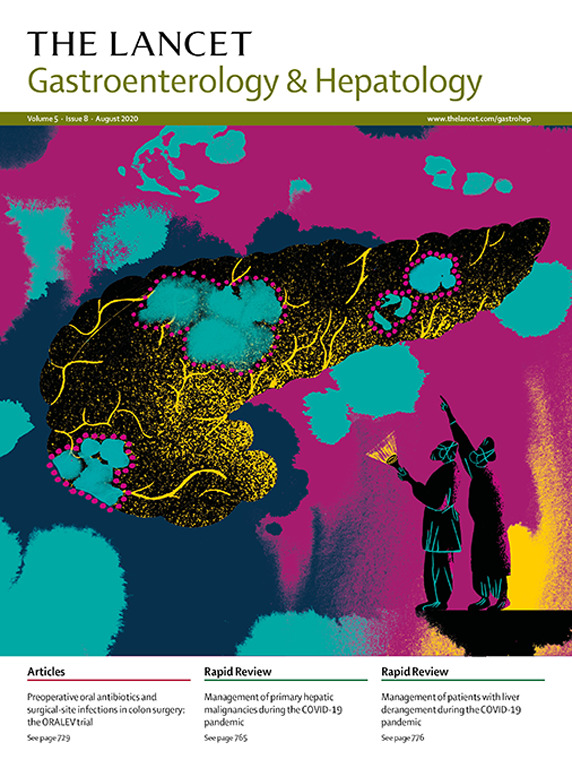Inflammatory bowel disease in south Asia: a scoping review
IF 30.9
1区 医学
Q1 GASTROENTEROLOGY & HEPATOLOGY
引用次数: 0
Abstract
Inflammatory bowel disease (IBD) is rising at an alarming rate in south Asia and there is a paucity of data on IBD in this region. For this scoping review, we conducted a systematic search to identify all observational and interventional studies on IBD in south Asia. Of 14 924 potentially eligible studies, 524 were included in this scoping review and summarised under the domains of epidemiology, natural history, phenotype and comorbid conditions, therapeutics, and psychosocial health. According to the literature, IBD incidence and prevalence are rising in south Asia and among south Asian immigrants, and the diagnostic rate is higher in men than in women. Genetic predisposition is an important risk factor in south Asia, whereas environmental risk factors are less clear. Delay in diagnosis, although possibly decreasing over time, is common in south Asia and is associated with worse outcomes. There are no clear differences in IBD phenotype and severity in south Asia relative to Europe and North America. Corticosteroids and immunomodulators are the mainstay of treatment in south Asia whereas the use of biologics is less common. Mental health disorders, malnutrition, and reduced quality of life are prevalent in patients with IBD in south Asia, and the use of complementary and alternative medicines among patients is an important consideration. Key knowledge gaps include the paucity of data from countries other than India, prospective, long-term, follow-up studies, and clinical drug trials in south Asia. IBD is a growing challenge in this region and warrants urgent clinical interventions, research, resource allocation, and health policy implementation.求助全文
约1分钟内获得全文
求助全文
来源期刊

Lancet Gastroenterology & Hepatology
Medicine-Hepatology
CiteScore
50.30
自引率
1.10%
发文量
0
期刊介绍:
The Lancet Gastroenterology & Hepatology is an authoritative forum for key opinion leaders across medicine, government, and health systems to influence clinical practice, explore global policy, and inform constructive, positive change worldwide.
The Lancet Gastroenterology & Hepatology publishes papers that reflect the rich variety of ongoing clinical research in these fields, especially in the areas of inflammatory bowel diseases, NAFLD and NASH, functional gastrointestinal disorders, digestive cancers, and viral hepatitis.
 求助内容:
求助内容: 应助结果提醒方式:
应助结果提醒方式:


